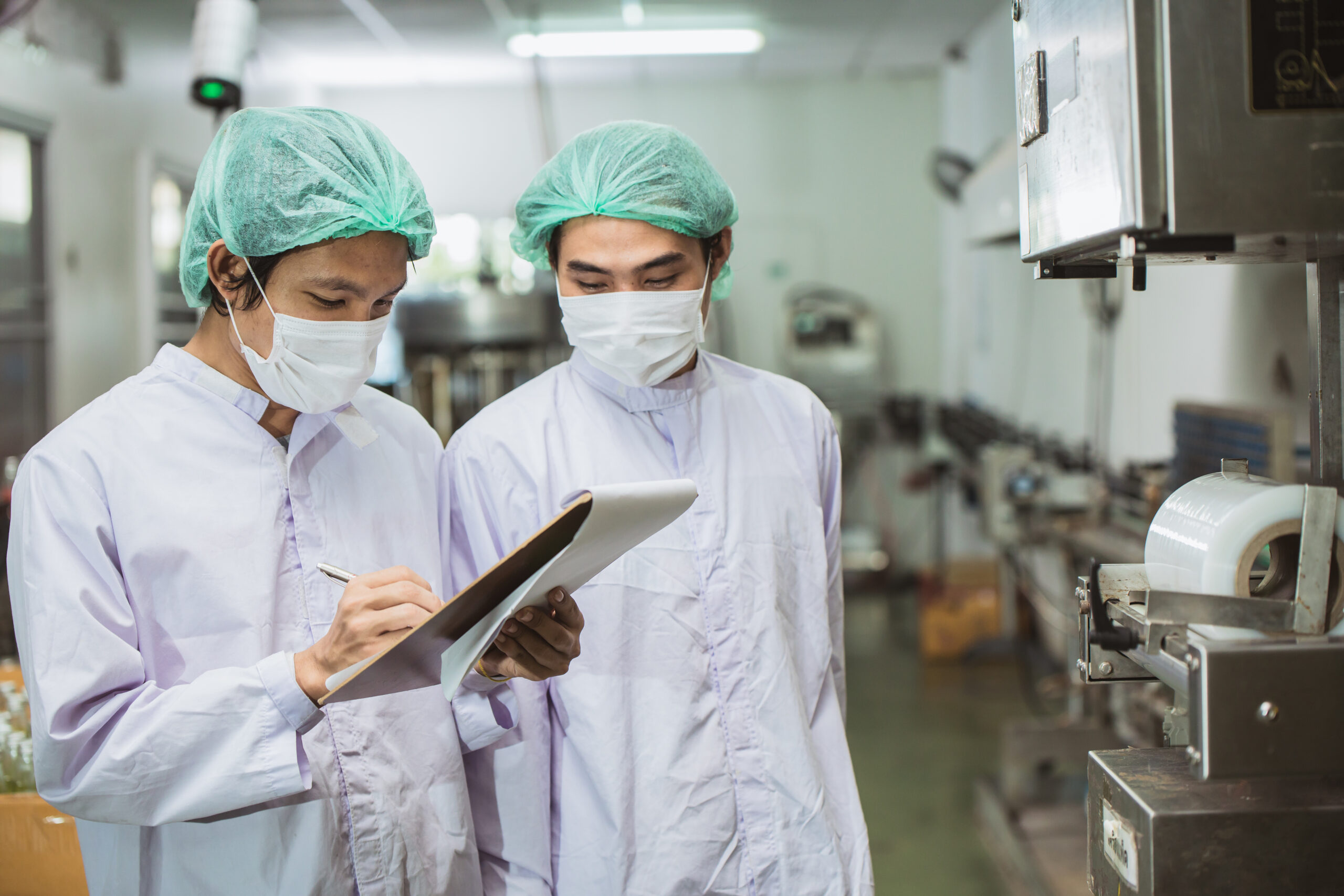Introduction
In the food industry, ensuring food safety and hygiene is of utmost importance.
To maintain high standards, it is crucial for businesses to conduct regular internal food audits.
These audits help assess and enhance compliance with food safety regulations and industry best practices, thereby safeguarding public health.
This article will discuss the key steps in conducting internal food audits and how they contribute to a safer and healthier food environment.
We will also explore the importance of certifications such as food safety courses and food hygiene certificates in Singapore.
Understanding the Purpose of Internal Food Audits
Internal food audits serve as a proactive measure to identify potential risks and areas of non-compliance within a food establishment.
These audits evaluate the effectiveness of existing food safety systems and processes, helping to prevent foodborne illnesses and maintain public trust.
By conducting internal audits, businesses can identify and rectify issues before they escalate, ultimately ensuring the safety and well-being of consumers.
Establishing an Audit Plan
Establishing a comprehensive audit plan is important before conducting an internal food audit.
This plan should outline the audit’s objectives, scope, and timeline.
It should also include details about the auditors responsible for conducting the assessment.
Allocating sufficient time and resources for the audit will enable a thorough evaluation of the establishment’s compliance with food safety standards.

Source: iStock
Conducting a Pre-Audit Assessment
Prior to conducting the internal food audit, it is beneficial to conduct a pre-audit assessment.
This assessment involves reviewing previous audit reports, documentation, and records related to food safety.
It helps auditors gain insights into the areas that require closer attention during the audit.
Additionally, a pre-audit assessment can identify any gaps in compliance and provide an opportunity to rectify them before the formal audit process begins.
Performing the Food Safety Audit
During the audit, auditors evaluate various aspects of food safety, including personal hygiene practices, storage and handling procedures, equipment cleanliness, and temperature control.
They also review records and documentation related to food handling and processing.
By conducting thorough inspections and interviews with staff members, auditors can assess the level of compliance with food safety regulations.
Identifying Non-Compliance Issues
Auditors may identify non-compliance issues or areas for improvement throughout the audit process.
These could include inadequate training of staff, improper storage practices, insufficient documentation, gaps in food handling procedures, or inconsistent temperature monitoring.
Each identified issue should be documented with clear descriptions, and corrective actions should be recommended to address them.
Developing Corrective Action Plans
After identifying non-compliance issues, developing and implementing corrective action plans is crucial.
These plans outline the steps required to rectify the identified issues and improve overall compliance.
They should be realistic, time-bound, and allocated to responsible individuals within the organisation.
Regular follow-ups should be conducted to ensure the effectiveness of these corrective actions.
Leveraging Singapore’s Food Safety Certification for Robust Internal Food Audits
Internal food audits are vital for ensuring compliance and safety in the food industry.
To conduct an efficient and thorough audit, it’s essential to have professionals well-versed in various facets of food safety.
Singapore Food Agency’s (SFA) progressive training framework is an excellent model to emulate, as it develops expertise through structured courses.
Below is a breakdown of each level within Singapore’s training framework and how it relates to conducting an internal food audit.
-
Level 1: Basic Food Safety Principles
Food handlers are introduced to basic food safety principles at this foundational food safety course level 1.
This ensures that the staff involved in the day-to-day food handling are aware of hygiene and safety standards, which form the base for any reliable internal audit.
-
Level 2: Area-Specific Safety Checks
Food handlers learn to conduct food safety checks within their work areas.
An internal audit benefits from having well-informed and competent staff as its first line of defence by ensuring that food handlers can monitor and maintain safety standards in their immediate environment.
-
Level 3: Food Hygiene Officers and Implementation of Safety Programs
This level is designed for Food Hygiene Officers (FHOs).
They are trained in implementing food safety prerequisite programs and in the fundamentals of Hazard Analysis and Critical Control Points (HACCP).
FHOs are integral to an internal food audit as they possess the expertise to assess the establishment’s adherence to safety programs and to identify potential hazards.
-
Level 4: Advanced Food Hygiene Officers and Comprehensive Audits
Advanced FHOs are trained in conducting extensive food safety checks and internal audits and implementing Food Safety Management Systems (FSMS).
This level is especially pertinent to internal food audits, as professionals at this level are adept at conducting document assessments, facility inspections, and evaluating adherence to food safety standards and regulations.
Incorporating a training approach similar to Singapore’s multi-tiered framework ensures that the professionals involved in an internal food audit are equipped with the requisite knowledge and skills.
This, in turn, strengthens the integrity and effectiveness of the audit, leading to enhanced compliance and safety within the food industry.

Source: iStock
Enhancing Compliance with Certifications
Similarly, businesses in the food industry can benefit from obtaining certifications such as the food safety course Singapore and food hygiene certification.
These certifications validate the establishment’s commitment to food safety and can enhance consumer trust.
They provide assurance to customers that the business adheres to stringent food safety protocols and follows industry best practices.
Additionally, these certifications demonstrate compliance with regulatory requirements and may be a prerequisite for certain contracts or partnerships.
Regular Monitoring and Review
Conducting internal food audits should not be a one-time event.
Establishing a system for regularly monitoring and reviewing food safety Singapore practices is essential.
This involves ongoing evaluation of compliance, addressing emerging risks, and updating procedures as necessary.
By regularly reviewing and improving food safety Singapore practices, businesses can adapt to changing regulations and industry standards.
Continuous Training and Education
Food safety practices and regulations are constantly evolving.
It is crucial for businesses to prioritise continuous training and education for their staff members.
Regular training sessions and workshops ensure that employees stay up to date with the latest food safety practices and regulations.
Investing in the professional development of staff members not only enhances compliance but also improves the overall culture of food safety within the organisation.
Conclusion
Internal food audits are essential for businesses in the food industry.
By assessing and enhancing compliance with food safety regulations and best practices, these audits contribute to a safer and healthier food environment.
Implementing corrective actions based on audit findings ensures continuous improvement and minimises the risk of foodborne illnesses.
In Singapore, where food safety and hygiene are paramount, obtaining certifications such as food safety courses and food hygiene certificates is crucial.
These certifications demonstrate individual competence and establish a culture of food safety within organisations.
With regular internal food audits, continuous training, and the necessary certifications, businesses can establish a strong foundation for maintaining high food safety and hygiene standards.
This, in turn, fosters consumer trust and ensures the well-being of the public.
Skillmaster: Empowering Food Safety and Compliance
At Skillmaster, we understand the critical importance of food safety and compliance in the food industry.
Our comprehensive food safety courses and certifications are designed to equip individuals and businesses with the knowledge and skills necessary to maintain the highest standards of food safety.
Whether you’re an individual seeking a food hygiene certificate or a business looking to enhance compliance through internal food audits, Skillmaster is here to support you.
Our expert trainers and comprehensive curriculum ensure that you receive the most up-to-date training and practical insights.
Take the next step in your food safety journey with Skillmaster, and join us in creating a safer and healthier food environment.
Visit our website today to explore our food safety courses and certifications and take the first step towards a more compliant and successful future in the food industry.




